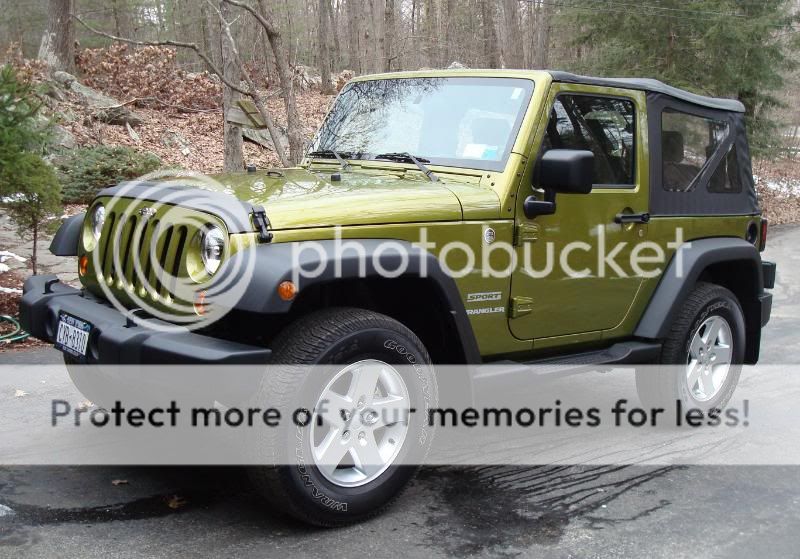If you drive a sports car already, you are probably willing to accept a bit of impracticality. I'm not a huge fan of Wranglers, personally, but I built a 2001 TJ as a birthday present for my mother (she loves them, and had one years ago). I've driven it many times, and I don't agree at all with what some are saying about them being something you shouldn't own as your daily driver. I know many people who do, and are perfectly happy about it. That being said, a Subaru of any model would make a more ideal vehicle if you are concerned about comfort, high speed stability, fuel economy, and NVH levels. I'll outline my observations about them (the 2.5 liter model, anyway), for what it's worth to you.
Don't concern yourself with the horror stories of the "death wobble". It's a term coined by those who don't know how to change a steering stabilizer. Just keep in mind that the steering stabilizer in these vehicles plays a much larger role in vehicle stability than it does in most others.
Reliability is good. Very little has gone wrong with this example in 10+ years of ownership, in fact less than in most other vehicles I've dealt with. The engine is on 105k miles now, and still uses no oil between changes. There are a couple of things that this engine is notorious for. The first is a lot of lifter noise, especially when the engine is cold. This isn't a big deal, and generally doesn't cause problems. The other is that the exhaust manifold studs (primarily the rearmost one, and most difficult to reach) are prone to breaking. This is another matter that isn't going to cause mechanical problems, but is quite a pain to fix and makes an irritating noise. Ease of maintenance is less than stellar. The engineers who designed it weren't particularly concerned with making the downrange mechanic's job easier.
The short wheelbase of these vehicles makes them less stable than others at higher speeds and on icy roads. I can say, however, that upgrading to slightly larger/severe service rated tires and better dampers helps improve both of these characteristics noticeably. Ride quality is not good, but it's not as nightmarish as some suggest, and certainly livable. Ride control is poor from the factory, but upgraded dampers improve it dramatically. The poor drag coefficient and tall outline contribute to both poor fuel mileage (about 18-19 MPG) and a high susceptibility to crosswinds. These are noisy vehicles, as well, but what you've heard about them being cold in the winter is false. The heater is quite good, the windows never frost/fog, and I stay as comfortable driving the Wrangler in the northern Wisconsin winters as I do driving my Camry.
Interior trim quality isn't very good, but you probably already suspected that. Chrysler electrical components are of poor quality (I've had to replace the fan speed switch twice, as the contacts wear out rapidly). I removed the rear bench seat from this example, and it makes a nicely sized flat load space in the back. The factory seats aren't especially good, either.
The top takes 3-5 minutes to put up or take down, but it's worth it. I've never driven any convertible that is as enjoyable with the top down in summertime as this one is. The headlights are excellent, too.
Fuel costs: higher than most.
Maintenance costs: low.
Tire costs: vary widely, mine were around $150 each (General Grabber AT/2)
Insurance costs: I pay $56 a month for full-coverage (Liability, Collision, Comprehensive, with deductibles of $250 for collision and $0 for comp)
Those are all of the major high and low points. I hope this helps in your decision. Take care.


